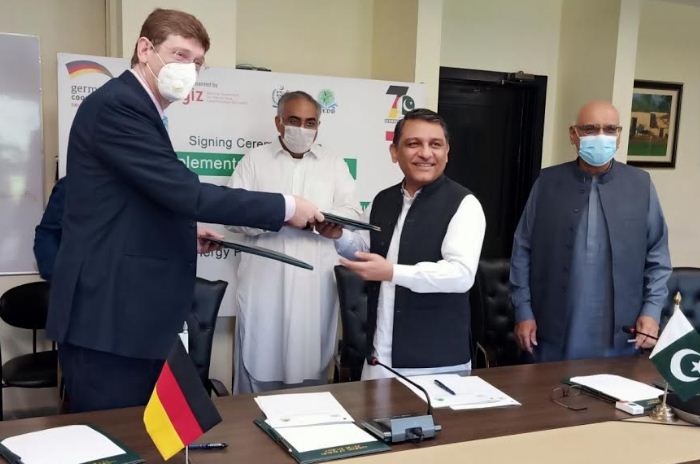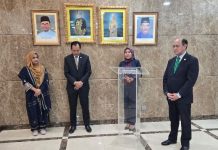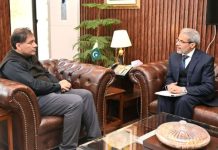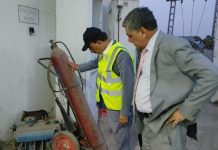DNA
ISLAMABAD, JUN 18 – Germany shares a cordial relationship in development cooperation with the Government of Pakistan for over 60 years. It has been a key partner in supporting the GoP to achieve its national priority policies since the 1960s in different development sectors.
Based on the long-lasting cooperation in the energy sector a new implementation agreement between GIZ Pakistan and the Ministry of Energy (Power Division) has been signed today at the Ministry of Energy (Power Division). Under the agreement, GIZ Pakistan will conduct the so called Renewable Energy and Energy Efficiency (REEE II) project, that will provide technical support to the Ministry of Energy –(Power Division) and its associated Alternative Energy Development Board (AEDB).
The aim of the project is to contribute effectively to the energy transition in Pakistan. The 8.1 million EUR project is commissioned by the German Federal Ministry for Economic Cooperation and Development (BMZ).
During the ceremony, Secretary Power Division, Mr. Ali Raza Bhutta, and Mr. Tobias Becker, Country Director GIZ Pakistan, reiterated the commitment to strengthen their cooperation. CEO AEDB, Mr. Shah Jahan Mirza, and various other notables from both sides, were present in the ceremony.
Speaking at the ceremony, Mr. Ali Raza Bhutta said “A major milestone in the energy transition in Pakistan is the new Renewable Energy Policy approved by Council of Common Interest in August 2020 the Alternative and Renewable Energy (ARE) Policy. The Policy aims for a substantial shift in the power generation capacity to RE sources, moving from a current 6% to 20% by 2025 and 30% by 2030. He emphasized on building the capacity of Pakistan’s RE &energy efficiency related organization. He also appreciated GIZ to cooperation in adopting best energy efficiency practices while learning from German experience. He expressed the desire that the current cooperation between GIZ and Ministry of Energy will go a long way towards improving Pakistan’s utilization of its great renewable energy potential.
Mr. Tobias Becker said that “as part of the Climate & Energy Initiative between Germany and Pakistan this intervention will support the increased deployment of clean energy technologies, it will promote distributed solar PV power plants connected to the electricity grid, as well as the rural electrification strategy of the country”.
The REEE II project responds to the national priority area of the Government of Pakistan, i.e, The Alternative and Renewable Policy 2019 and National Electricity Policy 2021. Through bilateral cooperation agreements, Germany and Pakistan have been working together to address the impacts of climate change and to ensure access to affordable, reliable and sustainable energy. In line with this, the Pakistan-German Renewable Energy Forum (PGREF) will continue to serve as a connecting bridge between both countries, implementing concrete actions and providing technical advice to enhance collaboration, promote dialogue, facilitate investment and exchange knowledge.












